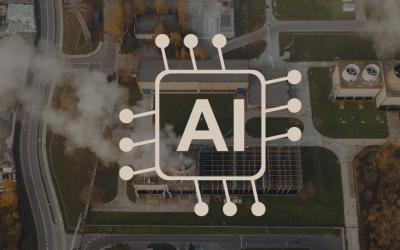How to Improve Software Development Collaboration with DevOps

In the fast-paced world of software development, collaboration and efficiency are crucial. Teams often face challenges related to communication, workflow integration, and timely delivery of high-quality products. This is where DevOps comes into play. DevOps, a combination of development and operations, is a set of practices aimed at bridging the gap between these traditionally siloed teams. By fostering a culture of collaboration and automating processes, DevOps significantly enhances the efficiency and quality of software development. In this blog post, we will explore the role of DevOps in improving software development collaboration and efficiency, and how Aduk can help you achieve these goals.
Understanding DevOps
DevOps is not just a set of tools or a specific technology; it is a cultural shift. It emphasises the importance of collaboration, communication, and integration between software developers and IT operations. The primary goal of DevOps is to shorten the software development lifecycle and deliver high-quality software continuously.
Key Practices of DevOps
1. Continuous Integration and Continuous Delivery (CI/CD)
CI/CD is a cornerstone of DevOps practices. Continuous Integration involves regularly merging code changes into a central repository, followed by automated testing. This ensures that code changes are continuously tested and integrated, reducing the risk of integration issues.
Continuous Delivery extends this concept by automating the deployment process. Once the code passes all tests, it is automatically deployed to production. This ensures that software is always in a releasable state, allowing teams to deliver updates and features more frequently.
2. Automated Testing
Automated testing is crucial in a DevOps environment. By automating repetitive testing tasks, teams can quickly identify and fix issues, ensuring that code changes do not introduce new bugs. This enhances the reliability and quality of the software, enabling faster delivery cycles.
3. Infrastructure as Code (IaC)
IaC is the practice of managing and provisioning computing infrastructure through machine-readable scripts or code. This allows teams to automate the setup and configuration of environments, reducing the time and effort required for manual provisioning. IaC also ensures consistency across development, testing, and production environments.
4. Monitoring and Logging
Effective monitoring and logging are essential for maintaining the health and performance of applications. By continuously monitoring applications and infrastructure, teams can quickly detect and resolve issues. Logging provides valuable insights into the application’s behavior, helping teams to diagnose and troubleshoot problems efficiently.
The Role of DevOps in Enhancing Collaboration
1. Breaking Down Silos
DevOps fosters a culture of collaboration by breaking down the traditional silos between development and operations teams. By working together, teams can share knowledge, skills, and responsibilities, leading to a more cohesive and productive environment.
2. Improving Communication
Effective communication is at the heart of DevOps. Regular meetings, such as daily stand-ups and retrospectives, ensure that team members are aligned and aware of each other’s progress. This transparency helps to identify potential issues early and facilitates quick decision-making.
3. Shared Responsibility
In a DevOps culture, both development and operations teams share responsibility for the entire software lifecycle. This shared ownership encourages teams to work together towards common goals, improving the overall quality and reliability of the software.
4. Accelerating Feedback Loops
DevOps practices, such as CI/CD and automated testing, enable faster feedback loops. Developers receive immediate feedback on their code changes, allowing them to address issues promptly. This rapid feedback cycle accelerates the development process and improves the quality of the final product.
The Impact of DevOps on Efficiency
1. Faster Time-to-Market
By automating processes and improving collaboration, DevOps significantly reduces the time required to deliver new features and updates. This faster time-to-market provides a competitive advantage, allowing businesses to respond quickly to market demands and customer needs.
2. Higher Quality Software
Automated testing, continuous integration, and continuous delivery ensure that code changes are thoroughly tested and validated before deployment. This leads to higher quality software, with fewer bugs and issues in production.
3. Reduced Operational Costs
Automation and efficient processes reduce the need for manual intervention, leading to lower operational costs. Additionally, the ability to quickly identify and resolve issues minimises downtime and associated costs.
4. Improved Scalability
DevOps practices, such as Infrastructure as Code, enable teams to easily scale their infrastructure to meet changing demands. This flexibility ensures that applications can handle increased traffic and usage without performance degradation.
Conclusion
DevOps is a transformative approach that enhances collaboration and efficiency in software development. By breaking down silos, improving communication, and automating processes, DevOps enables teams to deliver high-quality software faster and more reliably. Embracing DevOps practices not only improves the development process but also provides a competitive edge in today’s fast-paced market.
At Aduk, we are committed to helping organisations harness the power of DevOps to achieve their software development goals. Whether you are just beginning your DevOps journey or looking to optimise your existing processes, aduk.de offers the expertise and support you need. Reach out to us to learn more about how we can support your DevOps journey and drive success for your software projects.
Recent Posts
- Prototyping Done Right: How to Avoid Costly Mistakes
- Why Emotional Intelligence is Key for Leadership in the Digital Age
- How AI is Being Used to Combat Climate Change
- Building an Inclusive and Diverse Tech Workplace: Why It Matters
- The Rise of No-Code and Low-Code Development: Is It the Future?
- Green Software Development: How to Build Energy-Efficient Applications






